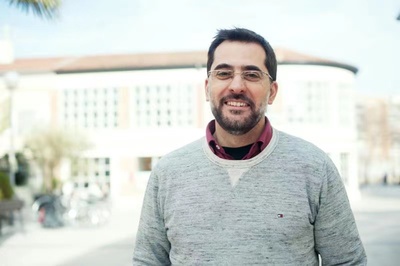发布日期:
2023-02-27
浏览次数:
163
|

主题 Can we think about education differently? First thoughts against the modern episteme and beyond modern schools.
时间 2023年3月7日(星期二) 北京时间 18:00 伦敦时间 10:00
主讲人 Dr. Jordi Collet-Sabé Associate professor of Sociology of Education and Education Policy. University of Vic-UCC. Barcelona. Spain
与谈人
彭正梅教授 华东师范大学国际与比较教育研究所
主持人 张丹副教授 华东师范大学国际与比较教育研究所
参与方式 #腾讯会议:136-133-306

Short CV
With a BA in Social Education and other in Sociology, Jordi Collet is since 2010 an Associate professor at the University of Vic – UCC in Barcelona (Spain). He was the Vice-president for the university research area (2019-2022) and he currently leads the Centre for Research on Education at the same university. He was visiting fellow at the Institute of Education – University College London (2013, 2015 and 2022) and at the Faculty of Education of the University of Cambridge. He has done research and published 12 books and more than 30 papers in international journals related to education policy; family, school and community relationship; early school leaving; addressing education inequalities; inclusive education, and family socialisation. He is part of the Editorial Board of the Journal of Education Policy and Research in Education journals.
https://www.researchgate.net/profile/Jordi-Collet-Sabe
Abstract In this seminar, I will shortly present the two papers attached: Against schools, an epistemological critique and Beyond School. The challenge of co-producing and commoning a different episteme for education both co-written with prof. Stephen Ball (IOE-UCL). In these papers, after refusing modern schools as intolerable institutions and using concepts from Foucault, Olssen, Lewis and others, we seek to find inspiration from and an accommodation between Foucault’s self-formation and commoning. A practice of collaborating and sharing to meet every day needs and achieve the well-being of individuals, communities, and environments, as a new way to think about education beyond modern episteme and modern schools.
|
|
|
|